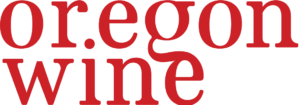Brushing Up: Current Research and Review of Cellar Sanitation
Let’s be picky about the quality and quantity of microbes we want in our wine! Join this discussion of current research on effective winery cleaning chemicals, best practices, and practical suggestions for maintaining a clean cellar, as well as identifying cleaning clinch points in winemaking and common winery sanitation needs. A great review for wineries of all shapes and sizes, whether you’re just starting out or wanting to take a closer look at your current cleaning protocols. And of course, if you don’t want to constantly be learning and talking about cleaning, then why be in the wine industry at all?!
View the Session Recording
Browse the Session Presentations
Speaker Bios
Scott Dwyer is part of the winemaking team for Lytle-Barnett and a part-time instructor for the Chemeketa Wine Studies program in Salem, Oregon. He helps to run the Winemaker’s Research Exchange, a wine education non-profit devoted to the execution and dissemination of oenological research projects. Scott is a native of the Virginia wine industry with a passion for enology research and sparkling wine production.
Dr. Anita Oberholster is a cooperative extension specialist at the University of California, Davis. Her research focuses on both the vineyard and the winery. In the vineyard, the influence of growing practices, disease, and environmental factors such as climate change on grape ripening and composition is investigated. In the winery, the influence of different winemaking techniques on wine composition and quality is studied. The link between grape and wine composition and final wine sensory characteristics is of great interest. Sustainability in both focus areas are important and alternative practices to enhance sustainability are investigated. Anita’s work has been cited 628 times and she has presented her research at international and national conferences, seminars, and workshops 89 times. In her extension activities she leads a team that facilitates interaction among several grape and wine industry stakeholder groups through in-person meetings, state-wide workshops and seminars, as well as electronic communication tools. She serves on the board of directors for the American Society of Enology and Viticulture (ASEV).
Dr. Randy Worobo joined the Department of Food Science at Cornell University in August 1997 and is a professor of food microbiology. In 1995, he obtained his Ph.D. in food microbiology at the University of Alberta in Edmonton, Alberta, Canada. Dr. Worobo was awarded a French Foreign Ministry Scholarship and carried out his postdoctoral work on antimicrobial peptide resistance mechanisms of Listeria monocytogenes at the Institute for Molecular Biology and Genetic Engineering in France. Research areas of interest include non-thermal processing alternatives for juice and beverages, microbial spoilage of beverages, and pathogen transmission and survival on fruits and vegetables. Dr. Worobo has extensive knowledge in winery, beverage, and food processing plant sanitation and has worked with various industries on sanitation programs. He is a member of the FDA Juice Hazard Analysis and Critical Control Point (HACCP) Curriculum Committee and a certified Juice HACCP Train the Trainer.

Leave a comment